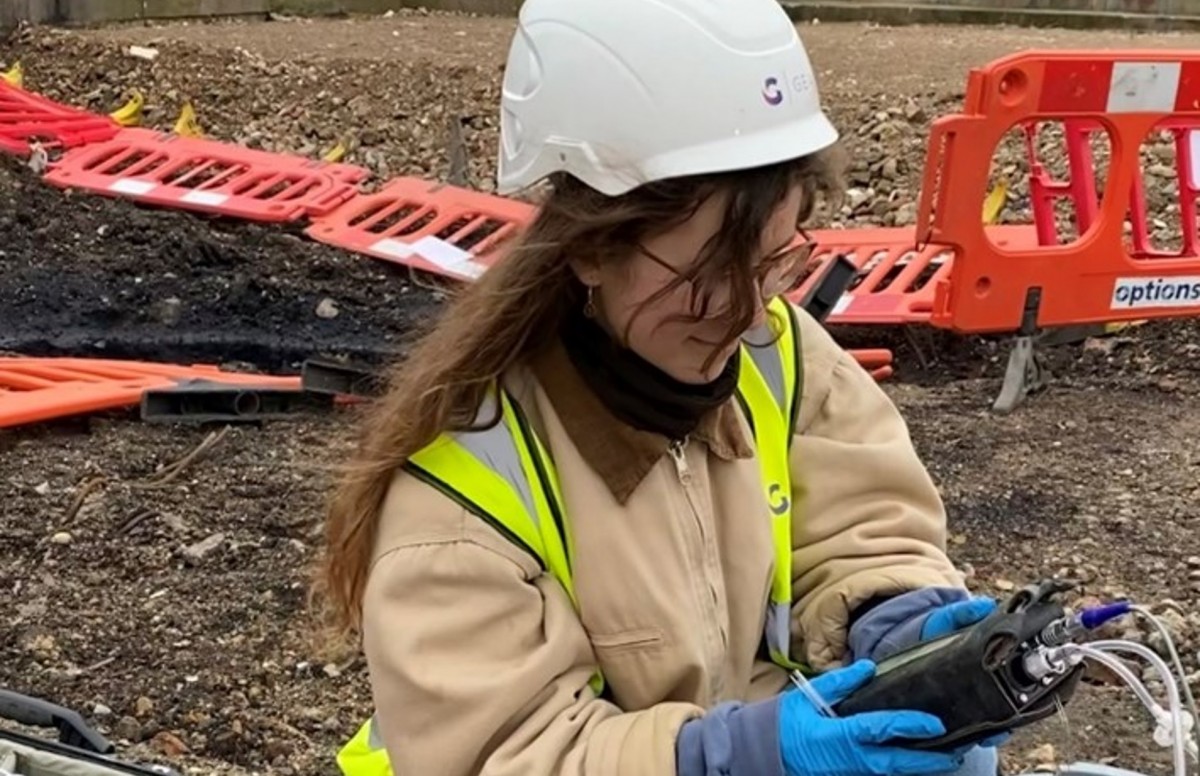The Facts About Geotheta Uncovered
The Facts About Geotheta Uncovered
Blog Article
5 Simple Techniques For Geotheta
Table of ContentsIndicators on Geotheta You Should KnowThe 2-Minute Rule for GeothetaTop Guidelines Of GeothetaFacts About Geotheta UncoveredThe smart Trick of Geotheta That Nobody is Talking About

They carry out website investigations, collect samples, execute research laboratory examinations, and assess information to examine the viability of the ground for construction projects - Geo Tech Engineer. Based upon their findings, geotechnical engineers provide suggestions for structure layout, slope security, keeping frameworks, and reduction of geotechnical dangers. They team up with other specialists, such as architects, structural designers, and building teams, to make certain that geotechnical factors to consider are incorporated right into the general project layout and execution
By examining the behavior and properties of soil and rock, they can determine prospective geotechnical dangers such as landslides, soil settlement, or slope instability. Their know-how aids avoid failures or accidents that could jeopardize lives and property. Below are some detailed duties and obligations of a geotechnical engineer: Website Investigation: Geotechnical engineers conduct site examinations to collect information on subsurface conditions.
They translate the data to recognize the buildings and behavior of the soil and rock, including their strength, permeability, compaction attributes, and groundwater conditions. Geotechnical Evaluation and Layout: Geotechnical engineers examine the information gathered throughout site examinations to examine the security and viability of the site for construction tasks. They do geotechnical estimations and modeling to assess variables such as bearing ability, negotiation, slope stability, lateral earth stress, and groundwater circulation.
All about Geotheta
Foundation Design: Geotechnical designers play an important function in developing foundations that can securely support the desired framework. They evaluate the dirt conditions and load requirements to determine the ideal structure type, such as superficial structures (e.g., grounds), deep structures (e.g (https://geotheta.weebly.com/)., heaps), or specialized strategies like dirt enhancement. They consider elements such as settlement restrictions, birthing capability, and soil-structure interaction to develop ideal foundation styles
They assess building plans, monitor website tasks, and carry out field inspections to confirm that the style suggestions are followed. If unpredicted geotechnical issues emerge, they examine the circumstance and supply recommendations for removal or adjustments to the design. Risk Evaluation and Mitigation: Geotechnical engineers examine geotechnical hazards and dangers associated with the job website, such as landslides, liquefaction, or dirt disintegration.

Cooperation and Communication: Geotechnical engineers function carefully with other professionals entailed in a task, such as designers, structural designers, and building teams. Reliable interaction and partnership are necessary to incorporate geotechnical considerations into the total job design and building and construction procedure. Geotechnical engineers provide technological know-how, response questions, and make certain that geotechnical needs are satisfied.
The Buzz on Geotheta
Right here are some kinds of geotechnical engineers: Foundation Designer: Structure engineers focus on creating and assessing foundations for frameworks. They evaluate the soil conditions, tons needs, and website qualities to figure out the most appropriate structure type and layout, such as superficial foundations, deep structures, or specialized techniques like heap structures.
They evaluate the factors affecting incline stability, such as dirt homes, groundwater conditions, and slope geometry, and establish techniques to stop slope failings and minimize threats. Earthquake Designer: Quake designers specialize in evaluating and creating frameworks to withstand seismic forces. They assess the seismic hazard of a website, examine dirt liquefaction capacity, and create seismic style criteria to guarantee the security and strength of structures throughout earthquakes.
They perform field screening, collect examples, and examine the collected data to characterize the soil residential properties, geologic formations, and groundwater conditions at a website. Geotechnical Instrumentation Engineer: Geotechnical instrumentation designers concentrate on surveillance and gauging the behavior of dirt, rock, and structures. They install and keep instrumentation systems that check aspects such as soil negotiation, groundwater levels, incline motions, and structural variations to examine performance and provide very early cautions of possible problems.
Geotheta Can Be Fun For Anyone
They conduct tests such as triaxial examinations, loan consolidation tests, straight shear examinations, and leaks in the structure examinations to gather information for geotechnical evaluation and style. Geosynthetics Designer: Geosynthetics engineers focus on the layout and application of geosynthetic materials, such as geotextiles, geogrids, and geomembranes. They utilize these materials to enhance dirt stability, strengthen slopes, give drainage remedies, and control disintegration.
They tend to be investigative people, which means they're intellectual, introspective, and analytical. They wonder, methodical, sensible, analytical, and rational. Several of them are also social, implying they're kind, charitable, participating, patient, caring, practical, empathetic, skillful, and friendly. Does this noise like you? Take our free profession test to locate out if geotechnical designer is among your leading occupation suits.
In the workplace setting, geotechnical designers use specialized software program tools to carry out calculations, create layouts, Check This Out and examine data. They prepare reports, testimonial task requirements, interact with clients and staff member, and coordinate project tasks. The workplace setting offers a conducive setting for research study, analysis, and cooperation with other experts associated with the task.
Our Geotheta PDFs
They frequently check out project sites to perform site examinations, evaluate geotechnical problems, and gather information for analysis. These gos to involve taking a trip to various locations, often in remote or difficult surfaces. Geotechnical engineers might carry out dirt sampling, conduct examinations, and monitor building activities to make certain that the geotechnical aspects of the task are being carried out properly.
Geotechnical designers also function in specialized geotechnical research laboratories. In these facilities, they conduct experiments, do tests on soil and rock examples, and analyze the design properties of the products. Geotechnical laboratory engineers function extensively in these settings, handling testing devices, operating tools, and recording data. They work together with various other research laboratory staff to make certain accurate and reliable testing outcomes.
Report this page